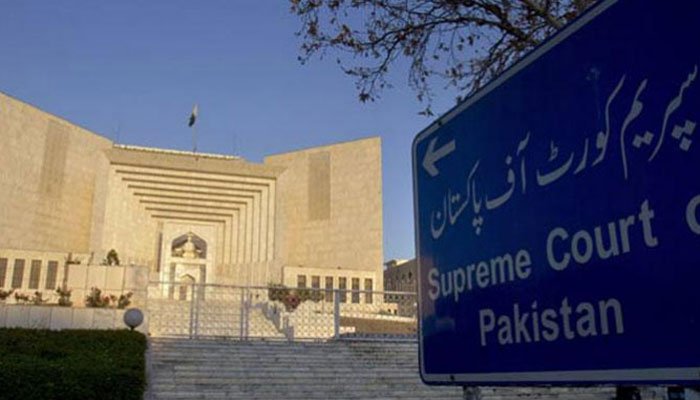Can the Hudaibya Paper Mills case be reopened today?
Hudaibya Paper Mills case first came to light over a decade ago when NAB filed a reference on basis of confessional statement by PML-N leader Ishaq Dar
May 22, 2021

The government has decided to re-open the Hudaibya Paper Mills case, which first came to light over a decade ago, when the National Accountability Bureau (NAB) filed a reference on the basis of a confessional statement by Pakistan Muslim League-N leader Ishaq Dar on April 25, 2000.
Dar, who at the time was in custody, admitted to laundering money to the tune of $14.86 million on behalf of the Sharif family through fictitious accounts. In return for his statement, Dar was pardoned by the then chairman NAB.
In 2014, Lahore High Court referee judge Justice Sardar Shamim quashed the reference on the grounds that if a re-investigation was allowed against the Sharif family, it would provide an opportunity to the investigators to pad up lacunas. Also in court, the PML-N had continued to claim that Dar's statement was taken under duress as he was in custody.
Strangely, the NAB decided not to challenge the High Court’s decision and only filed an appeal after Justice Azmat Saeed’s remarks while hearing the Panama Papers’ case, which was decided by a full bench of the Supreme Court in 2017.
Read more: Govt to reinvestigate Hudaibiya Paper Mills case: Fawad Chaudhry
Interestingly, former prime minister Nawaz Sharif was not named in the interim reference filed by NAB in 2000. But in the final reference, as approved by Khalid Maqbool, then chairman NAB, the Bureau had named Nawaz, Shehbaz Sharif, Abbas Sharif, Hussain Nawaz, Hamza Shehbaz, Shamim Akhtar, Sabiha Abbas and Maryam Nawaz Sharif as accused.
These days the government plans to open up the Hudaibya Paper Mills case again. The problem is that this case may be seen as a "past and closed transaction", meaning that the same case cannot now be reopened after it has been closed by a full bench of the Supreme Court, as noted in the judgment 1986 SCMR 1917.
There is also a trite law that a "delay of each and every day has to be explained" when the Court is asked to reopen an old case. This may be even more difficult to do since no application was made or filed by the incumbent government to get the case reopened or re-investigated before the Supreme Court at first instance or forthwith as soon as the CPLA as well as the Civil Review petitions were dismissed.
Now let’s say that new evidence has come up which calls for a fresh investigation. If that is the case, the genuineness of such evidence would need to be looked into before the case could be reopened.
So what options does the government have if it wants to probe the Hudaibya Paper Mills case again?
Firstly, the apex court enjoys wide and vast powers under Article 188 (read with Article 187) to do complete justice. Thus, the apex court can review, re-call, re-visit any orders passed by virtue of which any incorrect law has been laid down and the same could be declared as "bad law" or as "per-incurium".
Read more: SC dismisses NAB’s review petition in Hudaibiya paper mills case
It is also noteworthy that the Hudaibya case was never decided on merits, rather it was dismissed on the sole grounds of limitation alone.
It is and has been the practice of the Supreme Court that where any forum has not adverted to merits, the Court has been pleased to set-aside all such orders and send the case back for a fresh decision.
An example of this is the case reported as 2017 SCMR 56 wherein the Punjab Service Tribunal Lahore had dismissed the service appeal on the sole ground of limitation alone, but when the matter came to the Supreme Court, it set-aside the order and remand the case to be decided strictly on merits.
Additionally, in terms of Article 186, the President has been empowered to seek the opinion of the SC on any question of law.
When a presidential reference against the Zulfiqar Ali Bhutto case, reported as PLD 1979 SC 53, can be filed after decades seeking its resurrection or to declare it as a nullity or bad in law, why can’t the Hudaibya case be reopened or re-investigated?
A stronger argument for reopening the Hudaibya case would be that the merits of the case had not been deliberated upon previously, and that secondly, there is no time bar in cases of criminal prosecution.
Pansota is an advocate of the Supreme Court. He tweets @pansota1











